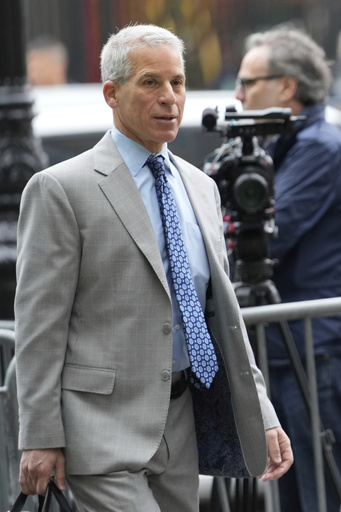In New York, a former personal assistant, known by the pseudonym “Mia,” has accused Sean “Diddy” Combs of rape and testified against him, asserting that her persistent communication with the hip-hop star, even years after her employment ended in 2017, was a result of being “brainwashed.”
Throughout her testimony during Combs’ ongoing federal sex trafficking and racketeering trial in Manhattan, Mia refuted suggestions by defense lawyer Brian Steel that her accusations were fabricated in pursuit of financial gain from the “#MeToo movement.” Combs, who has pleaded not guilty, acknowledges his potential for violence but denies using his industry influence to abuse.
Steel, during a rigorous cross-examination marked by frequent objections, presented several text messages from Mia to Combs, including a 2019 message in which she referenced a dream where Combs rescued her from a distressing situation with R. Kelly. Steel questioned this dream, highlighting the inconsistency of viewing a supposed assailant as a savior. However, objections from the prosecution were sustained by the judge, who also had to prompt Steel to streamline his questioning multiple times.
In a message from August 2020, Mia reminisced about positive experiences while working with Combs, mentioning memorable events like enjoying champagne at the Eiffel Tower and declining a ride from Mick Jagger. Steel questioned Mia’s account of feeling “bamboozled” by a woman, and her failure to similarly accuse Combs. In response, Mia stated she was still under a psychological influence, explaining her internal conflict and challenges in trusting her instincts.
Mia dismissed accusations that her allegations were lies, maintaining the truthfulness of her testimony. She explained her decision to come forward, fueled by a moral imperative after others accused Combs, emphasizing the struggle and therapy involved in processing her experiences.
Mia’s accusations detail incidents of inappropriate advances and assault, including an account of being raped at Combs’ Los Angeles home. Her reticence to speak out initially, even following a similar lawsuit against Combs by former girlfriend Cassie—a case settled rapidly for $20 million—was attributed to shame and a desire to keep her experiences hidden.
Coming forward only after Cassie’s lawsuit, Mia described her hesitance to confide in Cassie about her victimization and initially withheld details from prosecutors, taking months to fully disclose her experiences.
Steel implied that Mia’s decision to cooperate with prosecutors stemmed from legal advice, hinting at motives of a potential future lawsuit, but was restricted by the judge from pursuing this line of questioning aggressively. Concerns were raised by prosecutors about Steel’s interrogation methods, fearing they might discourage victims in other trials from testifying, accusing him of badgering and humiliating Mia with excessive focus on her social media interactions.
These proceedings, taking place amidst significant public interest, have brought attention to how accusations against high-profile figures are legally navigated, with ongoing testimonies, including another key witness using the pseudonym “Jane,” still to follow.



